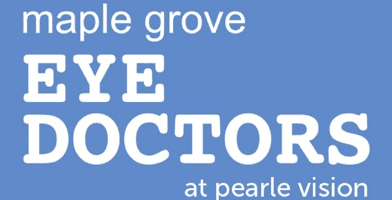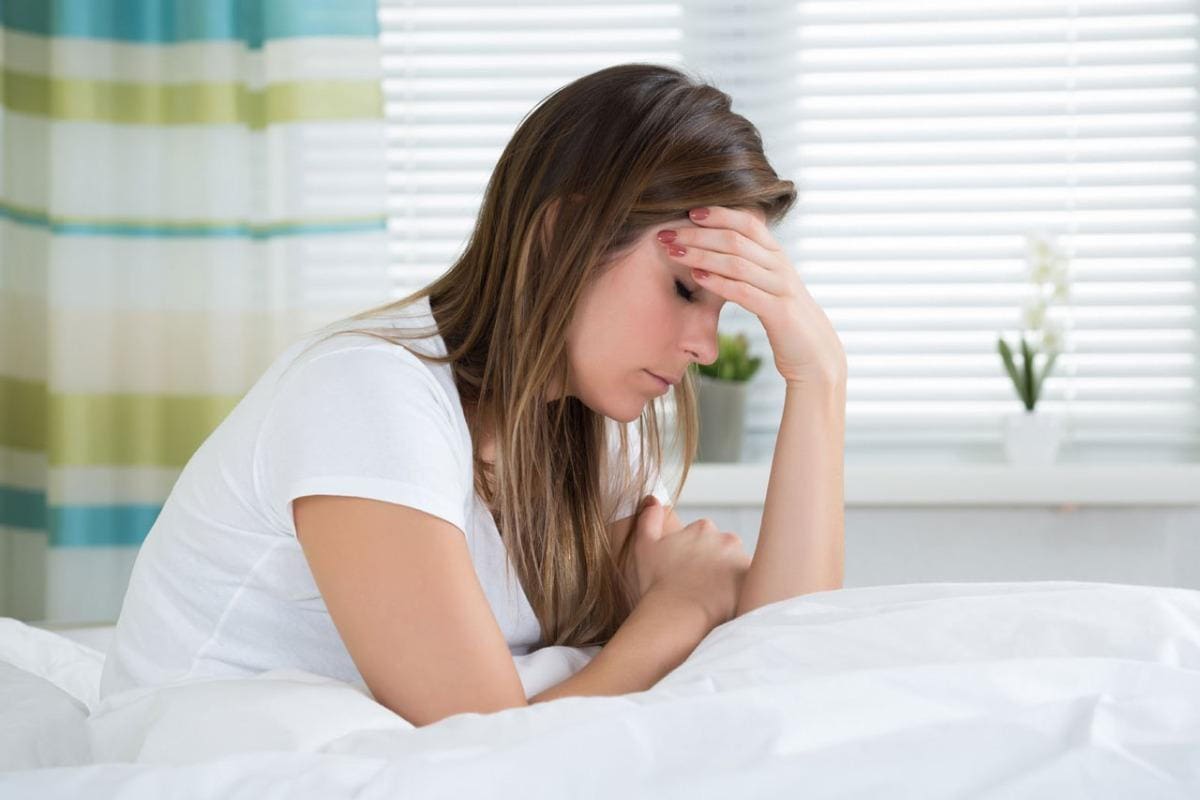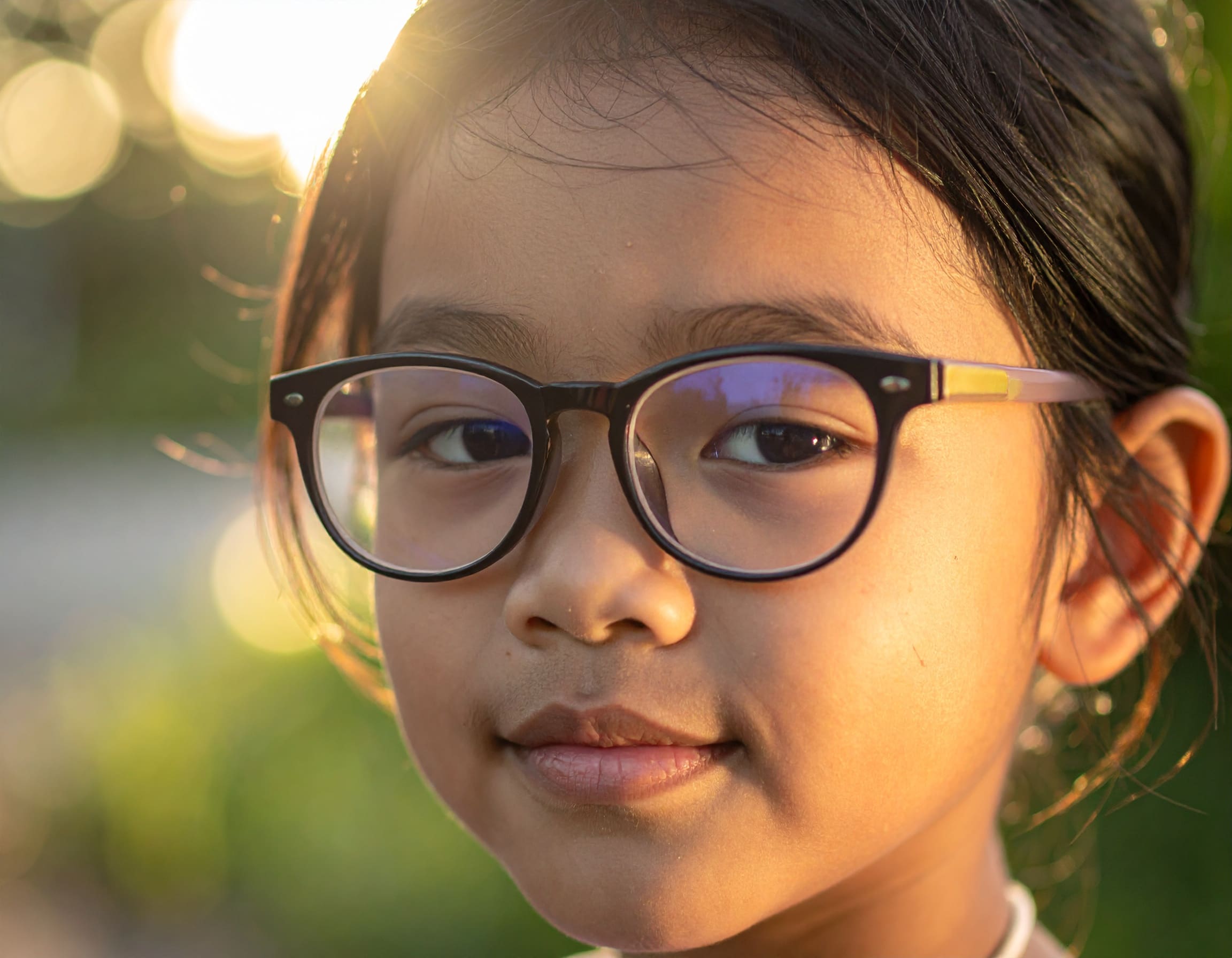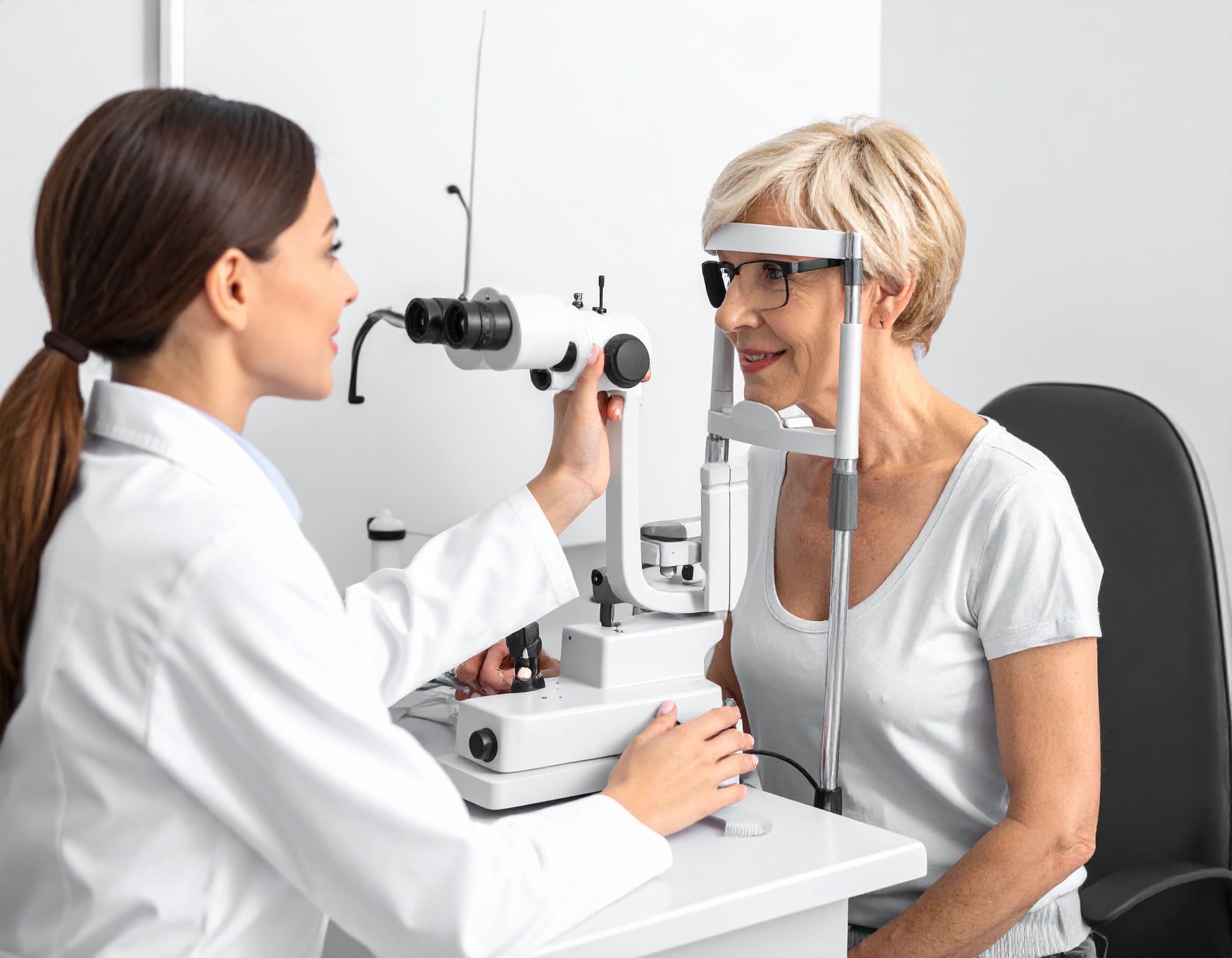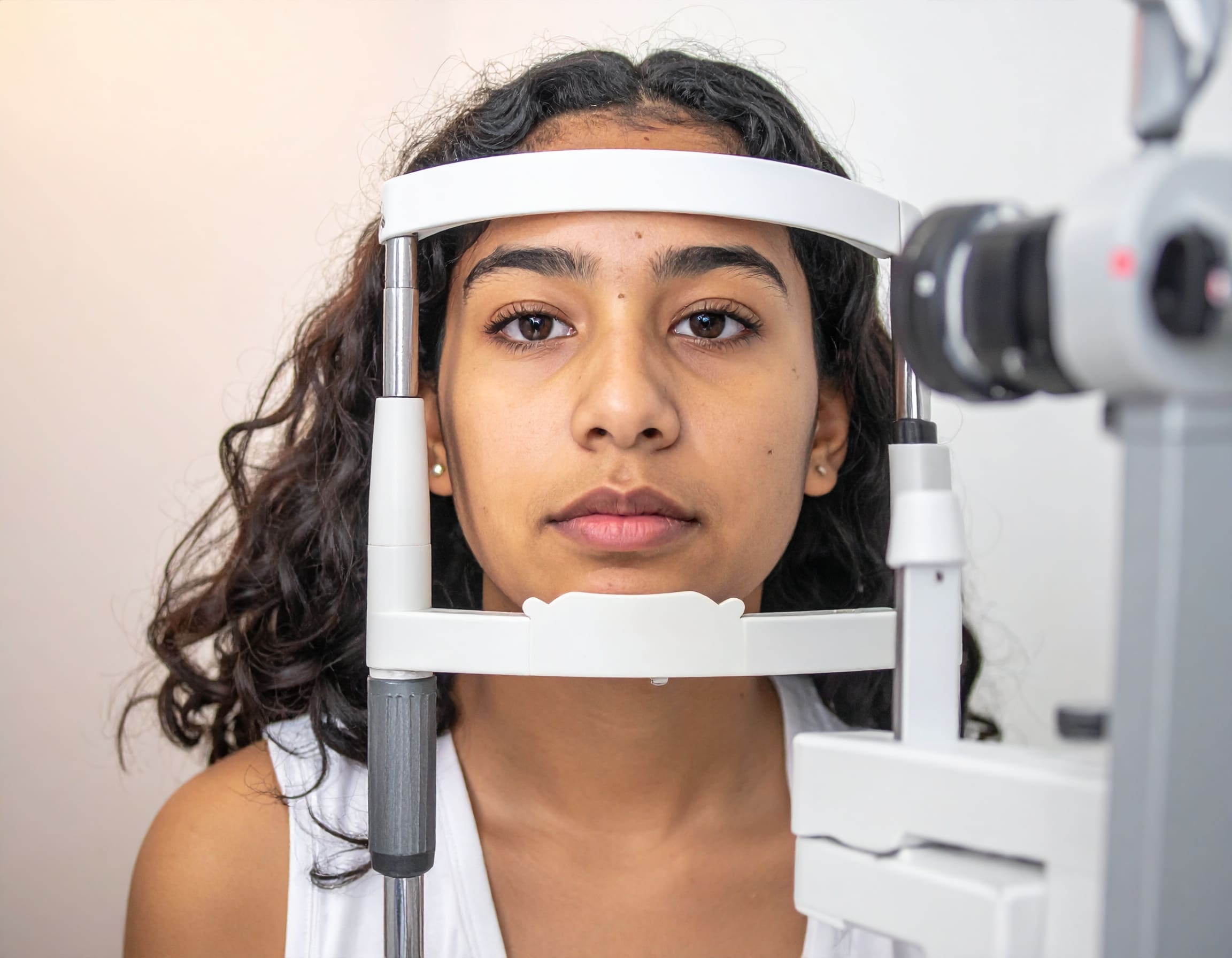Does Myopia Get Worse With Age?
Many people think that myopia, or nearsightedness, is a simple and correctable vision problem. You get new glasses or contacts every time you need a higher prescription and go about living your life. What you may not realize is that myopia isn’t that straightforward. Glasses are one of the many solutions to correct this refractive error. There’s so much more to managing myopia as you age.
What Is Myopia?
Myopia is an eye condition leading to blurry, distant vision because either your eye shape is too long (from front to back) or the cornea is steeply curved. This irregularity makes it difficult for light to reach the retina and process images, causing distorted vision. Other symptoms can include headaches, squinting, eye pain or pressure, shorter attention span, and eye fatigue. It’s commonly diagnosed between 6 and 14 years of age and progresses until the growth of the eye. The younger the child is, generally, the faster the progression of myopia.
Kids can experience sudden spurts of higher prescription. It usually slows down during teenage (11 to 18 years) and young adulthood (19 to 25 years). The progression is minimal between 25 and 30 years of age, but it also depends on your lifestyle and everyday habits. While myopia mostly stabilizes as you age, there can be slight progression in the 40s, 50s, and later years.
Unfortunately, nearsightedness is a common vision problem and it’s only rising around the globe. If left untreated, myopia can lead to sight-threatening eye diseases like cataracts, glaucoma, macular degeneration, retinal detachment, and even blindness. Kids with high myopia are at an even greater risk of developing these diseases. The good news is you can control its progression and get the best shot at experiencing a healthy vision for life.
What Worsens Myopia?
Myopia worsens not as you age but as your eye grows, which is most apparent in the early years of your life. Factors contributing to its development can include genetics, reduced outdoor time, visual stress, nutritional deficiencies, excessive near-focus work, trauma, and underlying health conditions. As the eyes grow, so does myopia. Knowing the exact cause can help develop a personalized treatment plan to preserve your vision.
How to Manage Myopia as You Age?
Myopia is said to be an epidemic. It’s everywhere! For this reason, it is crucial to be proactive and manage myopia to protect your vision. Here are five options your eye doctor may recommend:
· Multifocal Contacts
These lenses correct the way peripheral light rays focus in your eyes and improve distant vision. You can find FDA-approved multifocal contacts in daily disposable options. These are great for kids as well as people over 40 and are comfortable to use and wear.
· Ortho-K Lenses
Ortho-K (orthokeratology) lenses change how light focuses on the retina, creating a myopia control effect. These rigid gas-permeable lenses gently flatten the cornea, preventing further elongation and slowing myopia progression. Since they work overnight, you can have a better vision in the morning without additional measures.
· Atropine Eye Drops
Your optometrist may also suggest low-concentration atropine eye drops to slow down myopia progression. It’s the most effective medication to relax the focusing mechanism of your eyes. These drops increase dopamine and don’t allow the eyes to grow too much, making for a perfect addition to your myopia management plan.
· Outdoor Activities
When your eyes are consistently exposed to natural light, it prevents the elongation of the eye. It also stimulates the retina and facilitates the release of dopamine, which slows your eyes’ growth. Outdoor activities also involve looking at distant objects, reducing screen time, and exercising, which benefits the eyes and overall health.
· Lifestyle Changes
Limiting screen time, having a balanced diet, taking frequent breaks from close-up work, and wearing protective eyewear outdoors preserves your eye health. It reduces eyestrain, regulates eye growth, and protects against myopia development.
If nothing works, surgical options are also available. Laser surgeries can be performed if your vision is stable and myopia isn’t actively progressing. This also eliminates the need for contacts or glasses in most cases.
Schedule an Eye Exam to Maintain Good Vision Health
The answer to “Does myopia get worse with age,” is that it depends on age and other factors. Ideally, myopia gets worse in early childhood. It rarely worsens when you’re past your 20s, but there are exceptions, and staying informed and proactive is the right way forward.
Vision changes are possible at any age. Protect your and your child’s sight with a comprehensive eye exam now. At Maple Grove, we’re dedicated to helping our patients with a tailored myopia control plan. Book an appointment and discuss your options.
